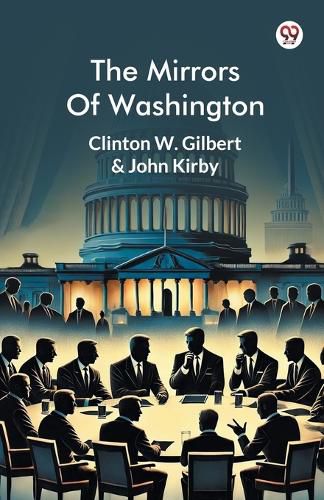Readings Newsletter
Become a Readings Member to make your shopping experience even easier.
Sign in or sign up for free!
You’re not far away from qualifying for FREE standard shipping within Australia
You’ve qualified for FREE standard shipping within Australia
The cart is loading…






The Mirrors of Washington delves into the contrasting political figures of two U.S. presidents, analyzing their leadership styles, ideologies, and impact on American politics. The text highlights the distinction between two presidential characters, one embodying the idealistic pursuits of progress and the other grounded in pragmatism and populism. It emphasizes how each leader s educational background and personal characteristics shaped their public perception. The narrative critiques the idealism that defined one leader s tenure and contrasts it with the down-to-earth appeal of another who connected with the average voter. The book explores the shift in American political thought from lofty ideals to more practical approaches, shedding light on the societal context that allowed such a transformation to occur. It critiques the limits of idealism in leadership, noting how voters ultimately responded to the changing political climate, favoring a candidate who seemed more relatable. Through this political analysis, the book captures the evolving nature of political leadership in early 20th-century America.
$9.00 standard shipping within Australia
FREE standard shipping within Australia for orders over $100.00
Express & International shipping calculated at checkout
Stock availability can be subject to change without notice. We recommend calling the shop or contacting our online team to check availability of low stock items. Please see our Shopping Online page for more details.
The Mirrors of Washington delves into the contrasting political figures of two U.S. presidents, analyzing their leadership styles, ideologies, and impact on American politics. The text highlights the distinction between two presidential characters, one embodying the idealistic pursuits of progress and the other grounded in pragmatism and populism. It emphasizes how each leader s educational background and personal characteristics shaped their public perception. The narrative critiques the idealism that defined one leader s tenure and contrasts it with the down-to-earth appeal of another who connected with the average voter. The book explores the shift in American political thought from lofty ideals to more practical approaches, shedding light on the societal context that allowed such a transformation to occur. It critiques the limits of idealism in leadership, noting how voters ultimately responded to the changing political climate, favoring a candidate who seemed more relatable. Through this political analysis, the book captures the evolving nature of political leadership in early 20th-century America.